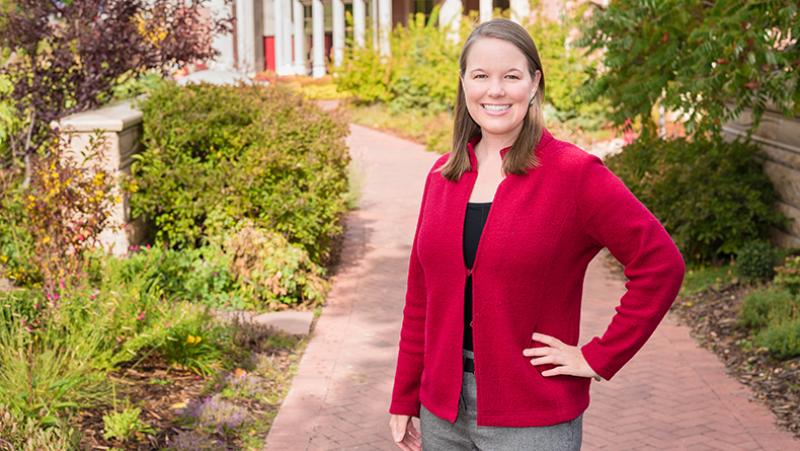Fighting Elder Abuse and Neglect
GSSW professor testing an intervention to improve outcomes for elder abuse and neglect victims

By the time Colorado’s first-ever mandatory reporting law for at-risk older adults was enacted in 2014, the city of Denver was ready with a multi-disciplinary response to complex, difficult-to-prosecute cases of elder abuse, neglect and financial exploitation.
Two years earlier — when Denver’s law enforcement, criminal justice systems and aging services began developing the response — University of Denver Graduate School of Social Work Associate Professor Leslie Hasche and University of Denver Psychology Professor Anne DePrince were also at the table. Their research on the prevalence of elder abuse showed that it was widespread, had lasting effects, that very few victims were getting services and even fewer received a legal or criminal justice service response. (Read more about these findings on DePrince’s Traumatic Stress Studies Group blog.)
The Denver Forensic Collaborative for At-Risk Adults grew from those early meetings. Managed by the City Attorney’s Office, the intervention is an interdisciplinary community response by the city, offices of the district and city attorneys, Denver Police Department (DPD), Denver Adult Protection Program, and others. When Denver police are called about physical abuse, neglect or financial exploitation of an elder, the cases are referred to the Collaborative, which together decides how best to respond across housing, health, criminal justice and other systems.
“The Collaborative created a coordinated response to offer services related to health, well-being, aging and other needs in addition to a criminal justice response,” says Hasche, associate dean for academic affairs. “Previously, there was no mechanism to coordinate this type of response. Many of these agencies didn’t know who each other was.The first year was bumpy because we all spoke a different language and had different priorities for the older adult.”
DePrince (the lead investigator), Hasche (the co-investigator) and a team of graduate students from the University of Denver Traumatic Stress Studies Group are now wrapping up a National Institute of Justice-funded randomized controlled trial that sought to measure the impact of the Collaborative on criminal justice and victim outcomes.
Between 2014 and 2018, 272 older adult victims were randomized to the trial, receiving either the Collaborative approach or the standard response. Those participants who were able to consent (n = 40) completed personal interviews. Additionally, service providers completed collateral surveys for 220 victims, and the study also reviewed administrative data for all cases. Among the findings were that older adults have complex service needs that extend beyond elder abuse and neglect, and those who went through the Collaborative process did get more services. But prosecution rates remained consistently low across the Collaborative approach and usual care.
Victims also reported higher rates of depression and trauma symptoms than community-based samples of older adults. Yet, Hasche says, these older-adult victims reported low use of mental health services and barriers to knowing where to seek help, overall.
Study reporting is underway. Meanwhile, Hasche says, around 40 people representing 30 agencies continue to meet every month. “The service model is still going strong. There is a lot of support for thinking about how these systems can improve responses.” For instance, the District Attorney’s office has created a specialized elder response position, as has the DPD, where social workers are helping with training. And, the DA’s office and DPD have also been training social workers on topics such as how to build a legal case.
“This was a really wonderful nexus of research, policy and people in the field wanting to do something about elder abuse and neglect,” Hasche says of the community-driven intervention. Next, Hasche wants to better define and describe experiences of exploitation and determine if there’s a better way to conceptualize service outcomes to address the multi-faceted concepts of safety, quality of life and well-being for victims of elder mistreatment.
Ultimately, Hasche says, “We’re trying to find ways to help with engagement in services and education about these needs and to pull in more advocates who can help.”




